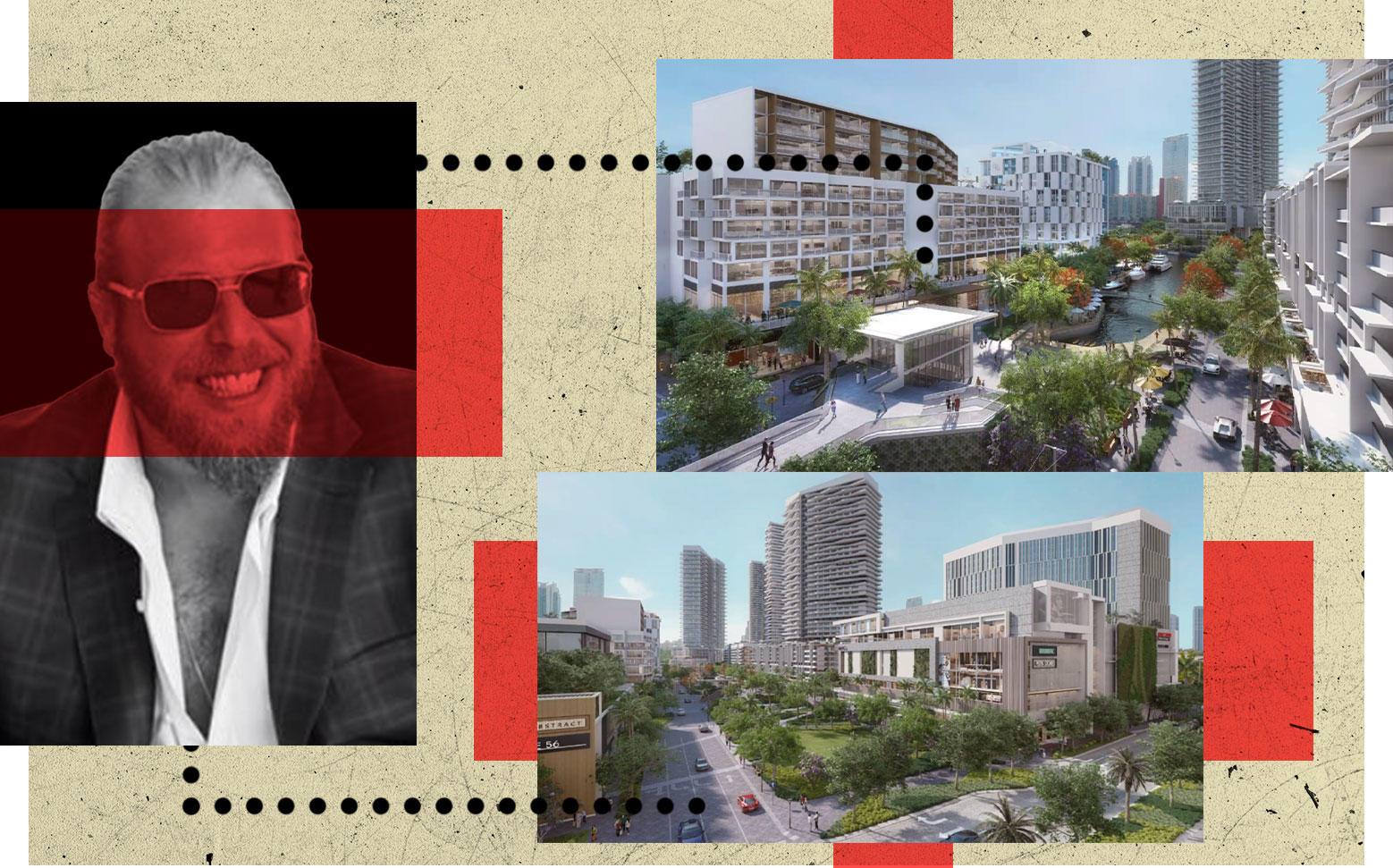A homeowners association filed a lawsuit challenging the city of North Miami Beach’s recent rezoning of the Intracoastal Mall for father-and-son developers Michael and Gil Dezer.
The Eastern Shores Property Owners Association and three Eastern Shores residents – Bruce Lamberto, Stacy Roskin and Bruce Kusens – are appealing the comprehensive zoning amendments and a development agreement that will enable Dezer Development to replace the waterfront Intracoastal Mall shopping center with Uptown Harbour, a $1.5 billion project that includes 2,000 residential units, 250 hotel rooms, 200,000 square feet of office space, a new 280,000-square-foot shopping center, a 50,000-square-foot supermarket, a 45,000-square-foot gym, and a brand new canal.
The zoning changes were approved by a vote of four to three last year.
Eric Isicoff, a partner of the Brickell-based law firm of Isicoff Ragatz and an Eastern Shores resident, is representing the Eastern Shores plaintiffs. The lawsuit was filed in Miami-Dade Circuit Court on Tuesday.
“We think the mayor and his fellow commissioners were wrong and they made a serious legal error on a matter with significant implications for the residents of Eastern Shores,” Isicoff stated in an email to The Real Deal. “We are hopeful that the court will recognize the error and quash the decision of the City Commission.”
North Miami Beach City Attorney Daniel Espino did not return a request for comment.
The lawsuit drafted by Isicoff alleges that the city ignored its own zoning code requiring developers to provide multiple vehicle access points in and out of the property prior to redeveloping Intracoastal Mall. Isicoff argues that adding more traffic lanes and widening existing entrances doesn’t sufficiently meet that requirement.
The complaint also alleges that Uptown Harbour’s towers won’t match the surrounding area of Eastern Shores, a neighborhood of single-family homes and low-rise apartments. Under the new zoning heights would rise on two sides from 12 stories or 160 feet to 20 stories or 286 feet; and from 20 stories or 255 feet to 32 stories or 425 feet, according to the lawsuit, marking a 66 percent increase to the heights originally proposed and approved, the lawsuit stated.
The lawsuit points to North Miami Beach Mayor Anthony DeFillipo indicating to Eastern Shores residents that he was skeptical of the developers’ traffic mitigation plans and that he’d ultimately vote against final approval of the project. It alleges that DeFillipo claimed that commissioners who voted in favor of the zoning change had “sold themselves to the devil.” However, after being re-elected in November, DeFillipo ended up supporting the project. (Kusens, one of the plaintiffs in the suit, ran against DeFillipo for mayor.)
“I didn’t say I was going to vote no. I said I was going to reconsider,” DeFillipo said following the Nov. 10 commission vote.
The Dezers purchased the 26-acre Intracoastal Mall in late 2013 for $64 million.
Two years later, the city rezoned the property to allow mixed-use high-rise development. In March 2020, Dezer Development increased its land holdings by purchasing a neighboring office building for $15 million.
By the summer of 2020, the Dezers were seeking additional zoning changes that would include the addition of a canal as well as height increases. Many Eastern Shores residents opposed the plans, fearing their neighborhood would be engulfed with traffic and skyscrapers.
Most zoning changes are finalized after two votes from a local elected body. However, the North Miami Beach City Commission had to vote on Uptown Harbour three times. The mayor called for the third vote after one commissioner was disconnected and another fell asleep during the second reading vote in August, which stretched past 2 a.m. and was held virtually on Zoom.
